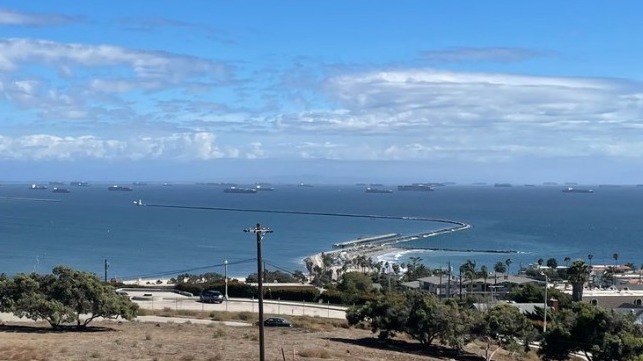Op-Ed: Technology is the Solution to the Supply Chain Crisis

The last few months have seen hundreds of container ships sitting idle outside key hub ports, unable to unload their goods as they look to catch up on a massive backlog.
With multiple ports overwhelmed by cargo volume, demand for imported products through the roof, and shoreside transport shortages in key markets like the U.S., Northern Europe and the UK, shipping is under more pressure than ever. As we approach the holiday period, it is therefore essential that the maritime industry reassess its processes and adopt new technologies to avoid a further breakdown of the global goods supply chain.
One of the biggest challenges the industry needs to overcome is the labor challenge facing ports, vessel operators and suppliers, which are all affected by short-staffing or fatigue.
Part of the importance of introducing technology like AI throughout the industry is to increase automation - not only on ships for improved visuals and traffic updates, but for port operators to support cargo movement and efficiency. Automating part of the logistics chain reduces reliance on people where there are shortages, making the entire process more efficient. Full automation is going to take a while, but the industry is making an effort to drive this change and trials are underway for automated cranes, distribution at ports and of course vessels.
To support this, it's essential that communication between those on shore and at sea is streamlined. The adoption of AI can make this more efficient through communications and time estimates, increasing efficiency throughout the industry. Live updates and timings from the port to the ships coming in will help reduce the backlog, as the ships will be able to reduce their speed to delay arrival, subsequently reducing their carbon footprint and fuel costs, while also relieving pressures on the port.
By reducing the workload for port and ship operators, the risk of error is reduced and efficiency can be optimized throughout the industry. While it is not an overnight solution, and will take time to come into effect, it will help lessen the strain on what is being labeled "Containergeddon" and can be the catalyst for driving forward innovation throughout the shipping world.
Yarden Gross is CEO and co-founder of Orca-AI. He is an experienced entrepreneur and the co-founder and former CEO of an automotive tech company backed by Engie - VC. He holds a BA in Economics & Business from the IDC.
The opinions expressed herein are the author's and not necessarily those of The Maritime Executive.
